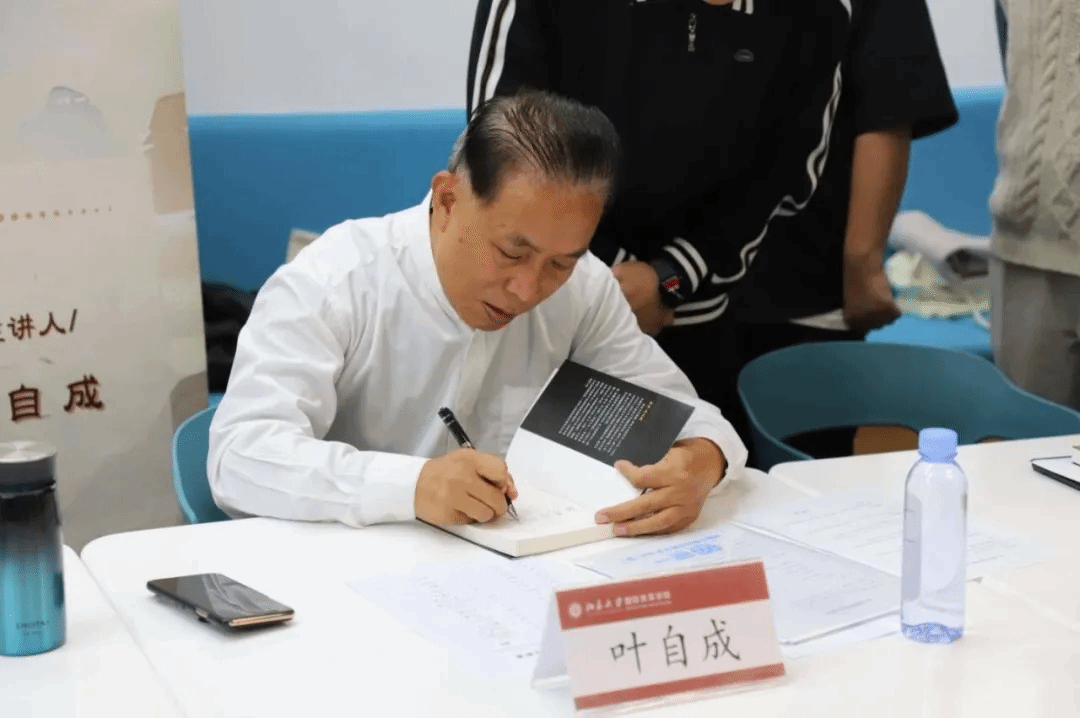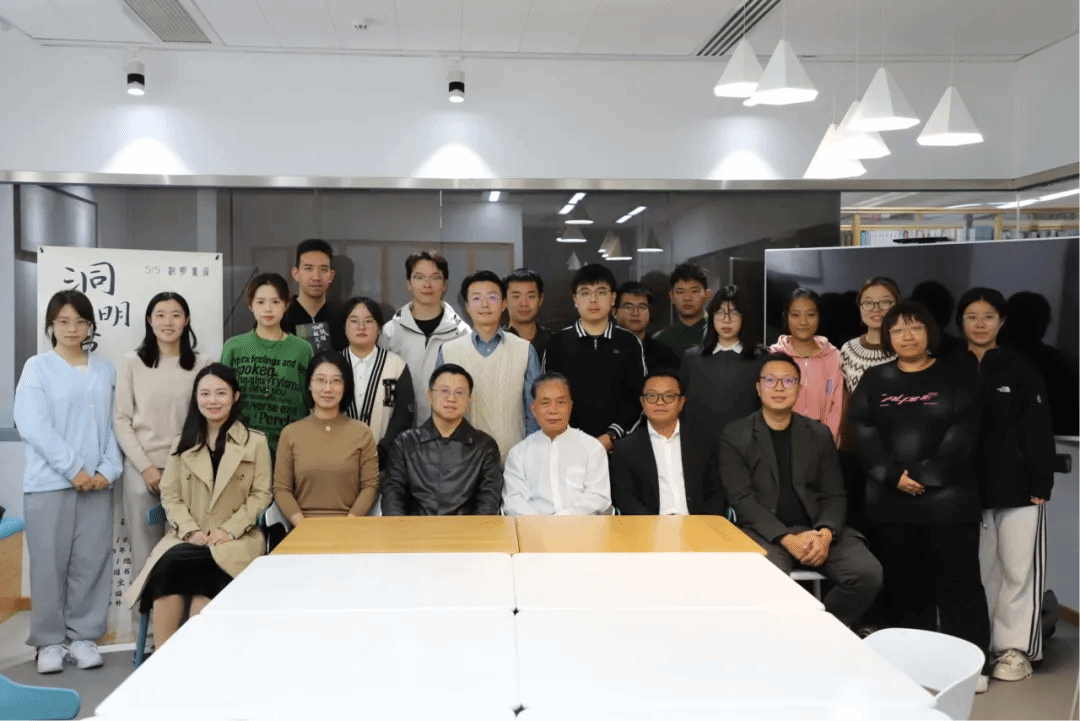On the morning of October 10th, Dongming Book House of the School of International Studies, Peking University (SIS) successfully held its tenth session. Professor Ye Zicheng, a doctoral supervisor at SIS, served as the keynote speaker, engaging with students in a discussion of his latest work, Abandoning the Eastern Zhou, Winning the World.
The event was jointly organized by the SIS Communist Youth League Committee and Institute for Global Cooperation and Understanding, PKU (iGCU). Attendees included Vice Dean of SIS Zhu Yibo, Zhang Xinyang, Deputy Secretary of the SIS Party Committee, Professor Wang Dong (who also serves as Vice Minister of the Department of Social Sciences, Director of the Think Tank Office, and Executive Director of iGCU), and Assistant Professor He Jianni. The event was moderated by Li Ruixuan, Secretary of the SIS Communist Youth League Committee.
Reflecting on his academic journey since 1978, Professor Ye Zicheng emphasized perseverance and a strong sense of mission as a Peking University scholar. He not only contributed to the establishment of the Department of Diplomacy but also proposed the concept of “Huaxia-ism,” dedicated to constructing a theoretical framework for Chinese national subjectivity. He described his new book Abandoning the Eastern Zhou, Winning the World as one petal in a blooming flower—symbolizing his unique intellectual vision.

Subsequently, Professor Wang Dong praised Abandoning the Eastern Zhou, Winning the World for its originality and depth, recognizing it as a groundbreaking interpretation of Confucian thought and the culminating work of the “Huaxia-ism” theory. He encouraged students to learn from Professor Ye’s spirit of innovation and intellectual independence, expressing deep respect for his scholarship.

Assistant Professor He Jianni, drawing on her own teaching and research experiences, shared her reflections on reading Professor Ye’s series of works on ancient Chinese diplomatic thought. She noted that Professor Ye’s scholarship consistently stands at the forefront of academic research and contemporary issues, striving to transcend Western-centrism in International Relations studies and emphasizing the value of the “human” element. His work plays a leading role in both Chinese and global academic communities. His keen insight, broad perspective, and tireless dedication to scholarship are qualities that future generations of scholars should emulate.

Vice Dean Zhu Yibo shared that he was profoundly inspired by a commencement address delivered by Professor Ye years ago, titled “Four Followings and Four Virtues, Concerning Our Nation.” In particular, Professor Ye’s remark, “Follow my heart, and my heart remains pure,” served as a reminder to pursue our life’s purpose with the utmost sincerity. Professor Ye’s academic spirit of perseverance in the face of adversity and relentless dedication continually inspires students to forge ahead.

During the interactive session, students actively raised questions covering topics such as the core differences between the feudal states of the Eastern Zhou and modern sovereign states, the interplay between power and scholarship in ancient China, the contemporary value and global contributions of Confucian thought, and a comparison of geopolitics in the Spring and Autumn and Warring States periods with modern European geopolitics. Professor Ye patiently addressed each question in detail.

To conclude the event Professor Ye Zicheng signed copies of his book and took a group photo with all attendees. Through this exchange, students gained a deeper understanding of Chinese traditional thought as represented by Confucianism and explored the dialectical spirit, innovative consciousness, rigorous attitude, and patriotic sentiment that scholars should uphold in their research.


